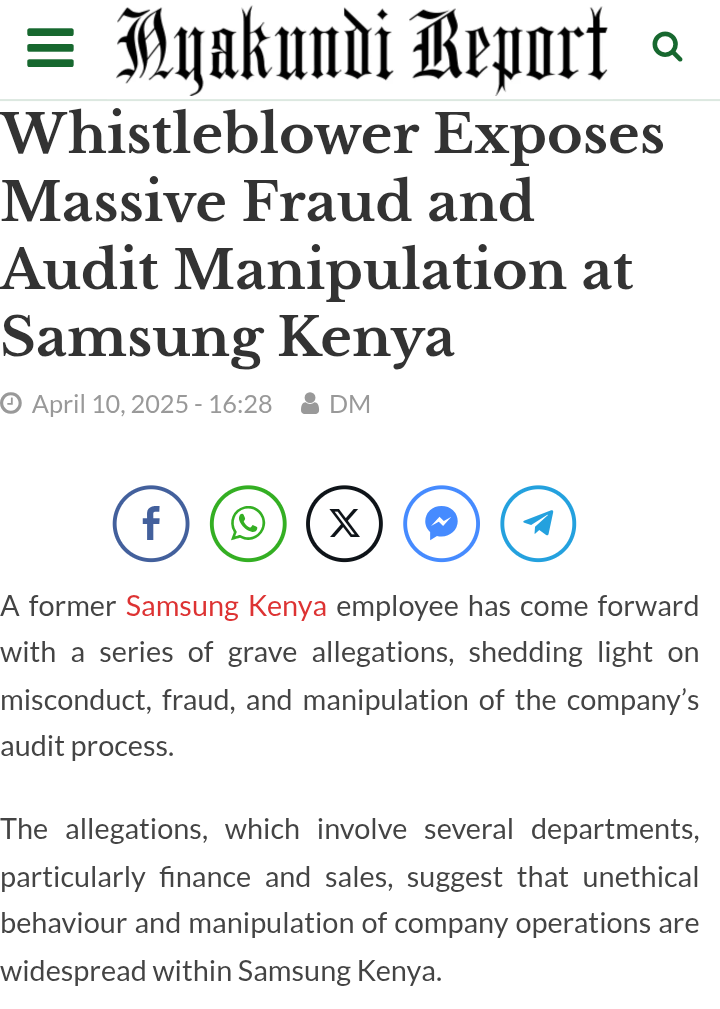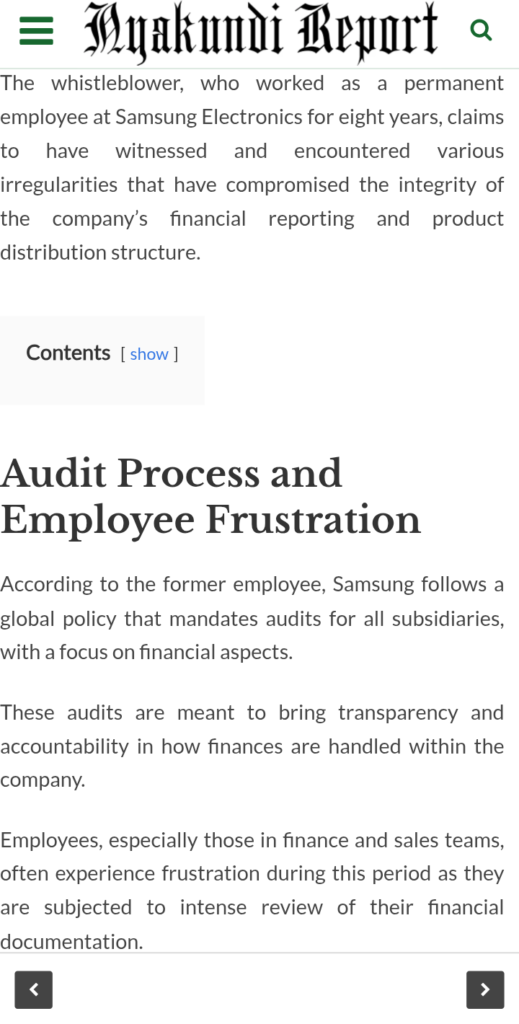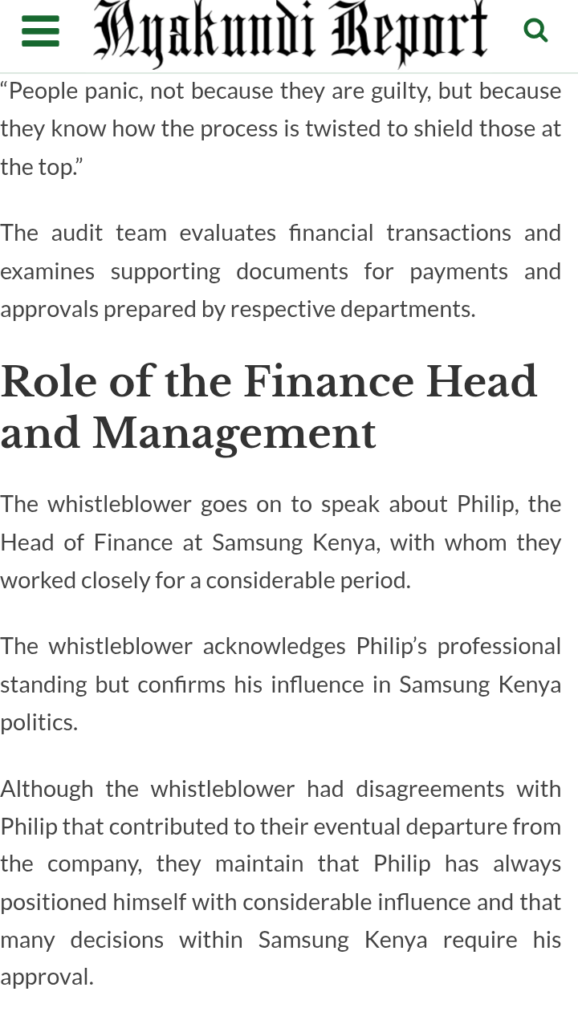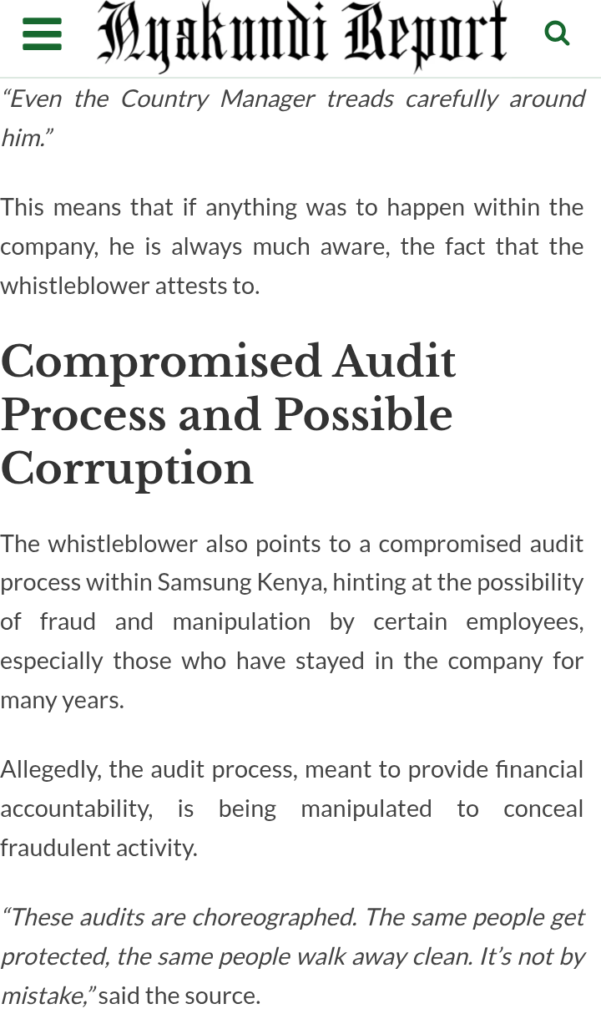Cyprian Is Nyakundi’s platform has once again exposed a troubling corporate scandal, this time involving Samsung Kenya.
A whistleblower who worked at the company for eight years has come forward, lifting the lid on what appears to be deep-rooted fraud, audit manipulation, and a toxic work culture.
These serious allegations paint a picture of a company where financial accountability has been abandoned for internal politics and protection of powerful individuals.
The whistleblower described Samsung’s audit system as a tool that is no longer about transparency. Although audits are meant to ensure accountability in all global subsidiaries, Samsung Kenya allegedly uses them to protect a few senior staff.
The audit period is described as a stressful time for employees, especially in the finance and sales departments.
“The audit period is usually a nightmare. People panic not because they are guilty, but because they know how the process is twisted to shield those at the top,” the whistleblower revealed.
The audits supposedly focus on reviewing documents for payments and approvals. However, the process is reported to be choreographed to ensure that specific powerful individuals walk away unchallenged, while others are targeted unfairly.

Finance Boss Accused of Controlling Operations.
A key figure named in the allegations is Philip, the Head of Finance at Samsung Kenya. The whistleblower admits that although Philip is highly professional, he holds too much power within the company.
“Without Philip’s green light, nothing moves. Even the Country Manager treads carefully around him,” the source stated.
This level of influence reportedly allows him to control how operations run and how audits are conducted. The whistleblower believes that any financial irregularity in the company is not just known to Philip but may be protected or overlooked under his watch.

Manipulated Audits and Insider Networks
The whistleblower further claims that the audit process has been compromised for years. According to them, the same corrupt staff members are repeatedly protected by internal networks, particularly within the sales department.
These are individuals who have been in the company long enough to secure their positions through manipulation and insider connections.
Adding weight to the claims is the allegation that a South African auditor named Andreas recently returned to Kenya after being involved in questionable audit practices.
The whistleblower suggests that Andreas may be acting in the interests of top executives instead of the company.

Calls for Immigration and Lifestyle Investigations
Concerned about the legality of some foreign workers’ presence in the company, the whistleblower has also called on the Immigration Department to investigate how work permits are issued, especially one belonging to Andreas.
They fear that such permits may be used to cover up wrongdoings by bringing in outsiders who protect the internal rot. They are also appealing to the Kenya Revenue Authority (KRA) to launch a lifestyle audit on Philip and other senior staff who live far beyond their known incomes.
This, they believe, could uncover a deeper network of corruption and misuse of corporate resources.

A Company in Crisis
The internal environment at Samsung Kenya, as described by the whistleblower, is one of fear and mistrust. Staff reportedly operate under constant stress, unsure of whom to trust or how their actions might be interpreted by the powerful few at the top. “Everyone operates in fear. We don’t know who’s listening, and every move is watched,” they added.
The allegations reveal a company that, instead of focusing on innovation and service, has been overtaken by corporate politics, greed, and intimidation. As investigations are awaited, it remains to be seen whether Samsung’s global leadership will take action or continue to ignore what appears to be a serious problem in its Kenyan branch.





















Add Comment